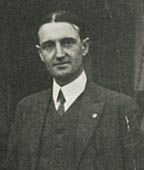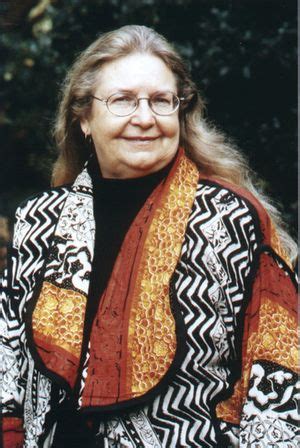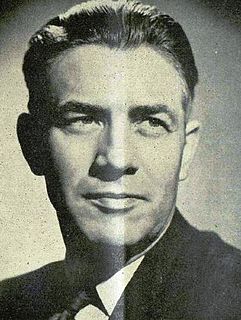A Quote by F. F. Bosworth
We see, from almost every conceivable angle throughout the Scripture, that there is no doctrine more clearly taught than that it is God's will to heal all who have need of healing, and that they may fulfill the number of their days according to His promise.
Related Quotes
One of the great compliments paid the Savior was that he taught as one having authority. The missionary who knows scripture and can quote it speaks with the voice of authority...May I suggest that in our family night gatherings we make it a project to memorize one scripture a week pertinent to this work. At the conclusion of a year our children will have on their lips a fund of scripture which will remain with them throughout their lives.
God is faithful. He'll fulfill every promise he's made. There's no disease God cannot heal, no heart he cannot mend, no bondage he cannot break, no enemy he cannot defeat, no mountain he cannot move, and no need he cannot meet. And because that same Spirit lives inside each of us, we move forward undaunted; we are unstoppable; and we live unshakeable. Focus on our unshakeable God instead of the chaos around you and he will carry you through the challenges and on to victory.
The amazing thing is that throughout Scripture and history it seems God has chosen the most seemingly unlikely and unqualified people to fulfill his plan and purpose on the earth. Most often, the response of those people has been to insist on their own unworthiness. And if they don’t-the people around them may do so, loudly and shrilly. And therein lies a danger: If we allow other people to tell us what we are and are not qualified to do, we will limit what God wants to do with us.
I do believe that healing takes place on a number of different levels and that in fact black healing can be deepened by trying to heal across as well as within. But it could be that to call for black and Jewish healing without acknowledging the need for intra-black healing puts the cart before the horse.
God is beyond definition. But according to one's own vision or receptivity, one will define God in one's own way. Some will say that God is all Love. Others will say that God is all Power. Each one will see God according to his own necessity, his own receptivity and, finally, according to the way God wants him to see the ultimate Truth.
As the books of Job, Jeremiah, and Habakkuk clearly show, God has a high threshold of tolerance for what appropriate to say in a prayer. God can "handle" my unsuppressed rage. I may well find that my vindictive feelings need God's correction - but only by taking those feelings to God will I have the opportunity for correction and healing.
It is important for the apologist who desires to be obedient to the Word of God in defending the faith to pay special attention to the fact that throughout Scripture, God's veracity is not defended, but accepted from the outset on His authority. Unless we have more wisdom than that contained in the revelation of God, we should take the same attitude.
In the first section of the Doctrine and Covenants we read that 'the Lord shall come to recompense unto every man according to his work, and measure to every man according to the measure which he has measured to his fellow man.' (D&C 1:10.) This principle, showing the manner by which God will judge us, puts a new light upon the commandment to love our neighbors as ourselves, and should persuade us to take that law seriously.
There is no doctrine more fundamental to our work than the Atonement of Jesus Christ. At every appropriate opportunity, testify of the Savior and of the power of His Atoning sacrifice. Use scriptures that teach of Him and why He is the perfect pattern for everyone in life.4 You will need to study diligently. Do not become so absorbed with trivial things that you miss learning the doctrine and teachings of the Lord. With a solid, personal doctrinal foundation, you will be a powerful source for sharing vital truths with others who desperately need them.
If it be taught that all who are born have a right to support on the land, whatever be their number, and that there is no occasion to exercise any prudence in the affair of marriage so as to check this number, the temptations, according to all the known principles of human nature, will inevitably be yielded to, and more and more will gradually become dependent on parish assistance.
... believing in a God whom we cannot but regard as evil, and then, in mere terrified flattery calling Him 'good' and worshipping him is a still greater danger... The ultimate question is whether the doctrine of the goodness of God or that of the inerrancy of scripture is to prevail when they conflict. I think the doctrine of the goodness of God is the more certain of the two. Indeed, only that doctrine renders this worship of Him obligatory or even permissable.
































